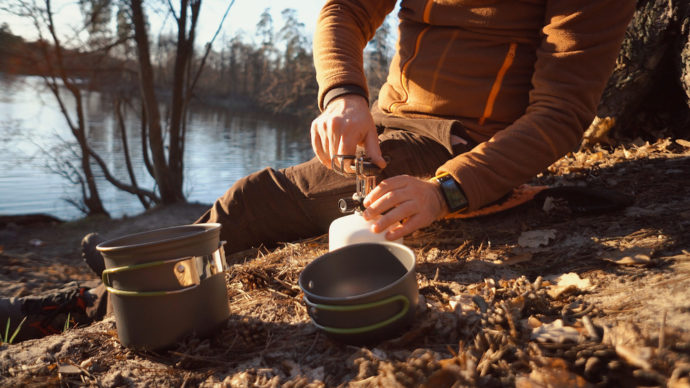You can do your part to help the environment by following these tips
If you’re an avid camper, one of the things you probably like most about camping is spending time immersed in nature. Whether you prefer the woods, mountains, or coastal waterways, spending time outdoors is a great way to feel a connection with the planet. However, if you want to lessen your impact on the planet, there are things you can do to have a “greener” camping trip.
Bring stuff you can reuse
Nobody wants to think about cleaning when they’re traveling, which is why so many folks bring along paper plates and plastic cups. But these should be avoided. It’s not hard to find reusable dishware and cutlery, and cleaning it is easy with a small bucket and some biodegradable soap.
Be smart about your water
There’s no denying how important it is to stay hydrated while hiking or just sitting outside on hot days. However, this doesn’t mean you need to bring cases of water with you. The better option is to take a gallon or two so you can refill your bottle when you need to. Better yet, if you’ll be camping near a water source, think about investing in a water filter.
Use nontoxic sprays and lotions
You’ll probably want to make sure you have plenty of sunscreen and bug spray before you go, but don’t just pack any kind. While they’re effective, most brands use chemicals that can be toxic to water and animals. Fortunately, you can make your own sunscreen that’s completely natural. There are also a lot of natural oils, such as tea tree oil, you can apply to keep mosquitoes and other biting bugs away.
Buy used or recycled gear
If you do a lot of camping, you probably have all of the gear you need already, but if you’re just getting started or it’s time for some new stuff, you don’t necessarily need to buy anything brand new. You can often find a lot of good, useful items at thrift stores or on various websites where people post cheap – or even free – gear. If you do plan to buy never-before-used things, look for tents and sleeping bags made from recycled materials. If they’re waterproof, it’s important to make sure they use solvent-free polyurethane coatings.
Take advantage of the sun
Camping can get pretty dark, and this is why many campers bring along several flashlights or lanterns. The problem is that the longer these lights stay on, the quicker the batteries run out, and having to keep replacing them is wasteful (not to mention expensive). The better option is to think about solar-powered lanterns and other lighting sources. If you plan on bringing a mobile device or GPS, you should also consider getting a solar-powered charger.
Leave things as you found them
The easiest thing you can do for the environment while camping is to just leave everything as you found it, and this means taking all your garbage and recyclables with you when you go. Don’t forget to bring along some cloth bags or other Earth-friendly receptacles for this stuff. And if you notice that other people who were there before you didn’t adhere to the “leave-no-trace” principle and left some litter, it doesn’t take a lot of effort to pick it up.
In a lot of ways, the environment is under siege, so it’s important for all of us to do what we can to help. With these tips, both you and Mother Nature can enjoy your camping trips. For more tips about camping, RVs, and the great outdoors, check out all our blog posts.































